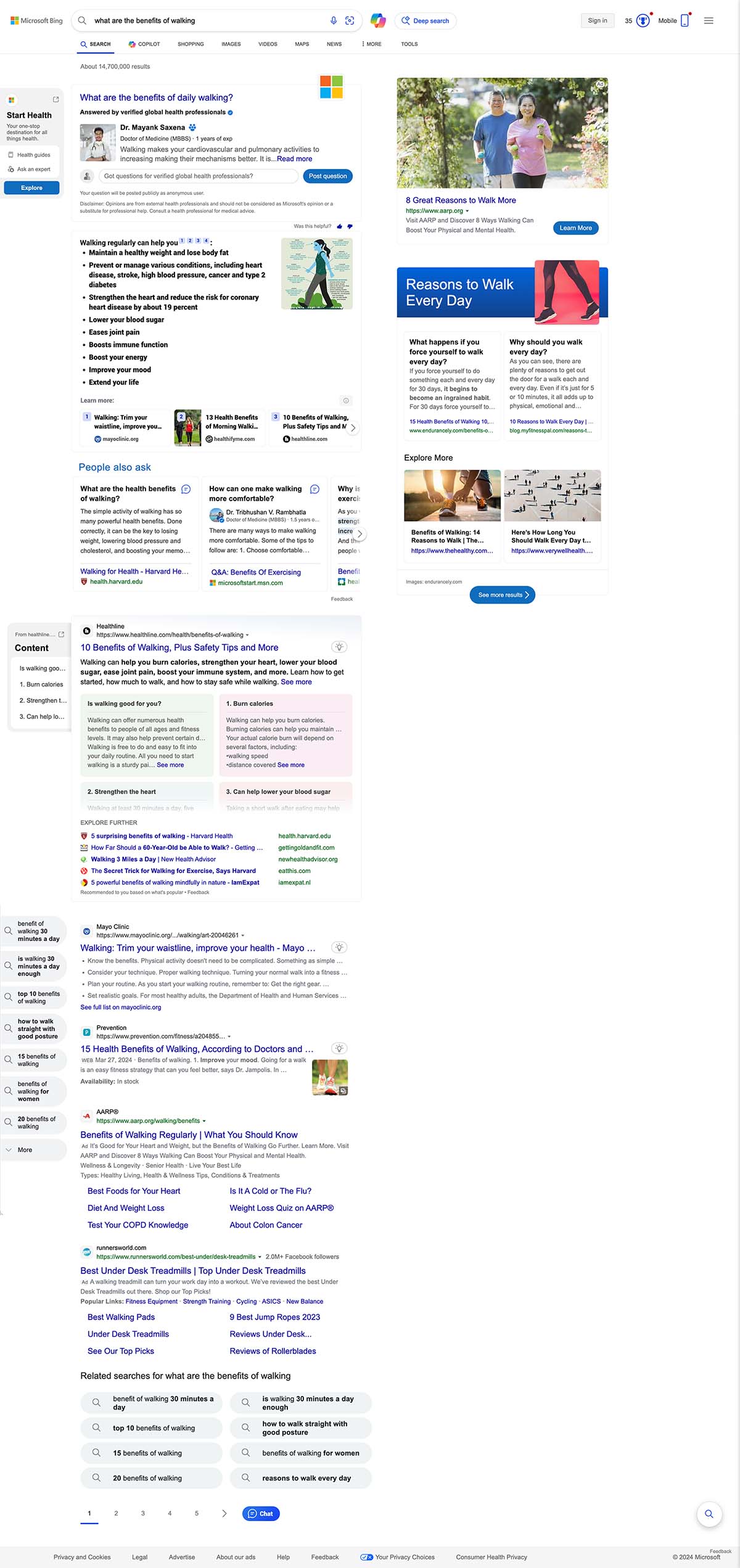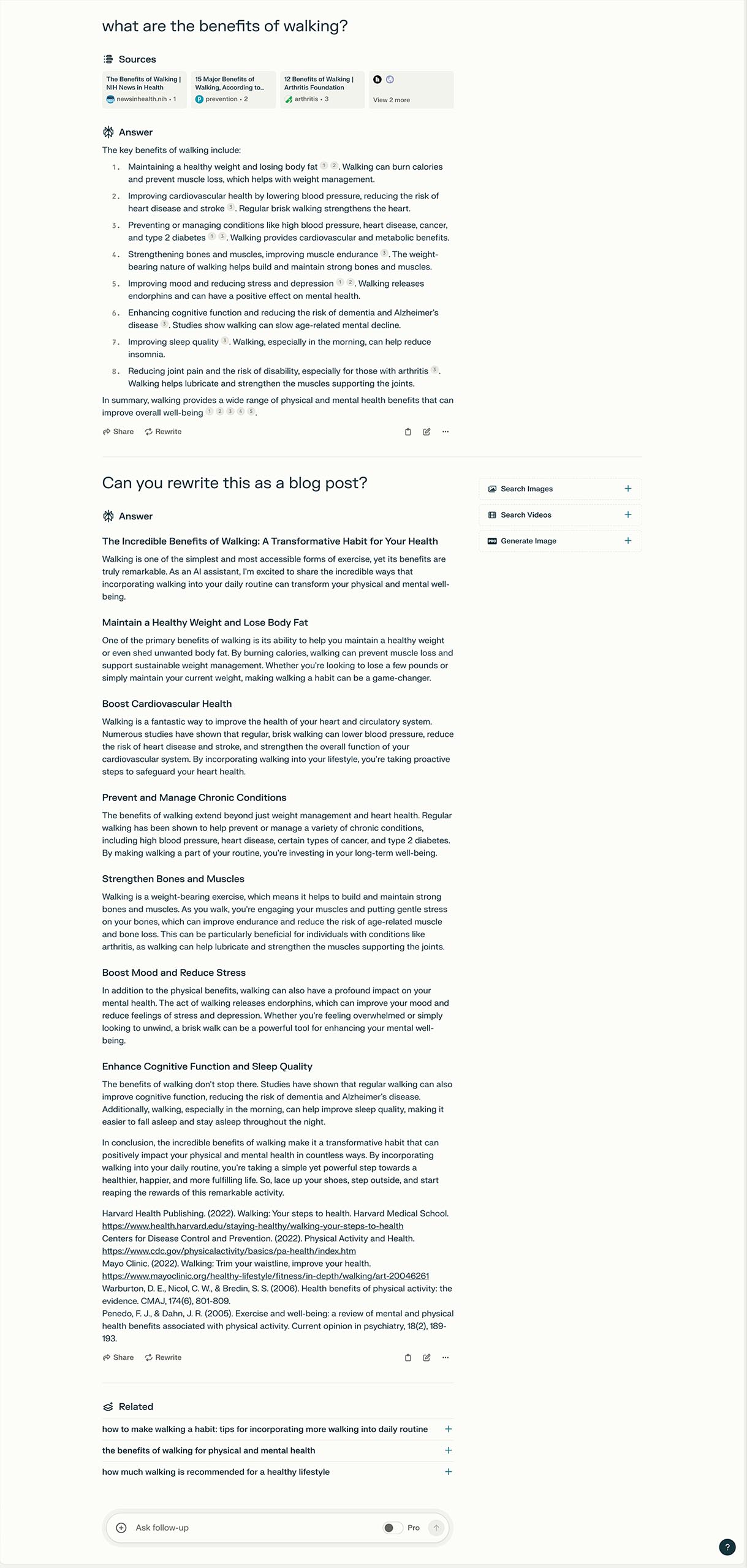May 6, 2024
Someone wrote to me last week to ask my advice on starting a blog.
I’m not going to discourage him. He’s a great writer, he’s retired and probably has the time to write, and he’s extremely community-minded (and his local community is his target audience). I have no doubt that he’ll write interesting and helpful articles—and if he promotes them locally and gets a newsletter going, I’d guess the people he wants to write for will be glad to read them.
Just one thing gave me pause in his question, though, and it was his question about the name he might give to his blog. He said he came up with it because he “thought it would come-up frequently in searches related to this little town”. It actually might help if the blog posts are specific to that town. Targeting a specific audience with very specific content that relates to them is still a good practice. Especially if the search phrases you focus on a phrases that signal “I WANT TO VISIT A WEBSITE”.
But there have been changes in how search engines are finding and offering information to users that are impacting bloggers who used to thrive—and it’s worth being aware of these changes. Famously, Google’s “helpful content” algorithm update of September 2023 disrupted the success of many a blog (and website)—often causing traffic to drop by about half.
By way of example, it used to be an SEO rule that giving your blog post the answer to someone’s question as the title would give it a good shot at being a prominent result if someone searched for that question. And users would click on the search result and start reading your blog post.
That’s changed. I just ran a test with the question “what are the benefits of walking?” and below are the results from Google, Bing and Perplexity. Admittedly, having used this phrase, I realized there are a lot of “authoritative” websites providing excellent content on this topic, so it may not have been the best question—but if you try any question you’ll see how blog posts struggle for attention these days. Sometimes there are even more blocks of attention-getting content in the way than below (rows of “videos you might like”, masses of results of aggregator-websites, etc).
Here’s the Google page of results. Way down the very-long page you’ll see the last item I’ve marked up with a red arrow is the first blog post to be displayed.

Featured Snippet
This is commonly the first result for a Google search query these days and it basically summarizes points from someone’s website for you. It does provide the link to a source website but it’s basically already given you the main points so you don’t have to click. And right below that there’s…
“People also ask”
Four related questions with accordions that allow you to open them up and get more answers (using information from other people’s website but without you needing to leave the Google search results page). And as soon as you begin opening these accordions, more appear below—and in each case, Google provides a snippet scraped from someone’s website that directly answers the question. Once again, there’s often no need to actually click through to a source website.
Articles by authorities
Articles by authorities have always been favored but it’s worth noting that in this case, Google only offers two at this point before offering yet another set of differently-curated results…
Discussions and forums
Very high up in the search results for many questions these days you’ll see these blocks of links to threads on Reddit, Medium, Quora and other discussion communities. They will be highly related to the question and they can be very helpful and interesting.
Related searches
After a few more articles by authoritative websites, there’ll be another block of accordions—this time “related searches”!—just in case you want to give up on whatever’s on this page so far and like one of the more refined questions. The pages these links take you to start with the same structure you see above—seriously trying to answer your question without you having to leave Google’s page and open someone’s website.
Images, Videos and more
There’ll be some more articles but also blocks of images, maybe blocks of videos, products you might like to buy, etc. Before finally…
The first blog post
For this particular search, the first actual blog post was 3/5 down the very long page of results and of course, it is a blog post titled “Benefits of Walking”. The few other blog posts further down in the results also feature “benefits of walking” in their titles—so it’s not that this time-worn SEO strategy doesn’t work at all. But it’s no longer as powerful a strategy as it once was.
Structured data
You might also notice the increase in numbers of search results here that include images on the right side. This is a good indication of the extent to which Google is preferring websites that use structured data. It’s worth noting.
So that’s Google. I’ll include screenshots of the results for Bing and Perplexity below. I’m not going to mark these up because you’ll get the idea with Bing—it’s equally full of ways to answer your question in-situ and so busy with colorful boxes and animated slide-ins I don’t know how anyone can focus here.
Perplexity is another story. Very quiet. Delivers a comprehensive answer in one swoop (with sources that, if you feel confident in Perplexity’s answer, you might not click).
And then you’ll see that I asked Perplexity to turn its first result into a blog post for me about the benefits of walking and it did just that.
Bing:

Perplexity:

This is not to stop you from blogging (says me, after all, writing away here)—but be cognizant of how the environment is changing. You can’t rely on any search engines or social media to play by rules that will benefit you forever. Write for the benefit of your readers and do the work to bring your posts to the attention of those readers.
Build a mailing list of your fans for starters.
And focus your SEO on phrases that signal “I WANT TO VISIT A WEBSITE” rather than phrases that answer people’s questions in ways that Google and the AI models can scrape and offer to people directly. If people are looking for something they can only get by visiting your website, you can still do SEO effectively.




